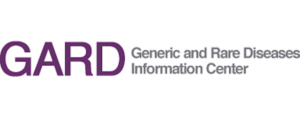
Editor’s Note: The following information has been provided by the Genetic and Disease Information Center to healthcare professionals regarding ICD Coding for Rare Diseases. We include this article in the PRP Survival Guide (Chapter 1) to help PRP patients and caregivers better understand the regulatory challenges under which dermatologists and other healthcare professionals must function. Consider the following ICD-10 codes: .
❏½ Psoriasis is ICD-10 L40.0
❏½ Pityriasis rubra pilaris is ICD-10 L44.0
❏½ Atopic Dermatitis (includes eczema) is ICD-10 L20.0
❏½ Acquired ichthyosis is ICD-10 L85.0
 You need to have an ICD code for your patient’s medical records–it is important for health insurance reimbursement, administration, epidemiology, and research. Finding the best ICD code for a patient who has a rare disease can often be a challenge. Many rare diseases are not included in the World Health Organization’s (WHO’s) International Classification of Diseases (ICD). Of the approximately 7,000 rare diseases, only about 500 have a specific code.[1] Different versions of the ICD code exist worldwide. The United States currently uses the ICD-10-CM, a Clinical Modification of the WHO standard for diagnoses adapted for insurance reimbursement and billing purposes. This version allows for further breakdown of a code, which increases diagnosis specificity. You may find published material that references ICD-9-CM codes, which were used before October 1, 2015; however, not every code in the ICD-9-CM has a corresponding code in ICD-10-CM. Europe and other parts of the world use the ICD-10. The root codes for ICD-10 and ICD-10-CM are the same, making it helpful for locating codes for general body systems and disease processes.
You need to have an ICD code for your patient’s medical records–it is important for health insurance reimbursement, administration, epidemiology, and research. Finding the best ICD code for a patient who has a rare disease can often be a challenge. Many rare diseases are not included in the World Health Organization’s (WHO’s) International Classification of Diseases (ICD). Of the approximately 7,000 rare diseases, only about 500 have a specific code.[1] Different versions of the ICD code exist worldwide. The United States currently uses the ICD-10-CM, a Clinical Modification of the WHO standard for diagnoses adapted for insurance reimbursement and billing purposes. This version allows for further breakdown of a code, which increases diagnosis specificity. You may find published material that references ICD-9-CM codes, which were used before October 1, 2015; however, not every code in the ICD-9-CM has a corresponding code in ICD-10-CM. Europe and other parts of the world use the ICD-10. The root codes for ICD-10 and ICD-10-CM are the same, making it helpful for locating codes for general body systems and disease processes.
What should I do if a rare disease does not have an ICD code?
A good place to start is to contact an advocacy organization for the rare disease. These organizations are often aware of how the condition has been coded for other patients with the same diagnosis and may be able to recommend one or more codes to use. Many disease advocacy organizations also have medical advisory boards or physician directories, which may be able to direct you to someone with experience coding for that particular condition. You can search the GARD website for a list of disease advocacy organizations. If you don’t find a specific group, contact a GARD Information Specialist. See our page on How to Find a Disease Specialist for more tips on how to find a healthcare professional who sees patients with a particular rare condition. Orphanet is a European reference portal for information on rare diseases and orphan drugs. Orphanet outlines the ICD-10 coding rules for rare diseases included in their database. The Orphanet database also often includes coding information for the Online Mendelian Inheritance in Man (OMIM), the Unified Medical Language System (UMLS), and more. When a diagnosis has not been established, or when a code does not exist for a specific rare disease, general coding guidelines indicate that it is acceptable to use codes that describe signs and symptoms. You may want to review this article from the American Academy of Professional Coders (AAPC) titled ICD-10-CM Coding Tips: Signs and Symptoms. As a general rule, code up to the highest number of digits you can and list only the most common signs and symptoms.
When will more ICD codes for rare diseases be released?
ICD-11 is scheduled to be released in 2018. It is expected to have a tenfold increase in the number of rare diseases that are currently in ICD-10. So far, 5,400 rare diseases from the Orphanet database are present in the foundation layer of ICD-11.[3] The WHO established a Topic Advisory Group for Rare Diseases composed of international experts, who will add more rare diseases over time.
Where can I find an ICD code?
Several online resources can help you find ICD codes:
❏½ WHO ICD-10 Version: 2016 – A searchable online version of ICD-10 that allows users to search by hierarchy or by entering the disease name. LINK
❏½ List of Official ICD-10 Updates – ICD-10 updates endorsed by the WHO. LINK
❏½ ICD10Data.com – A website created to make it easier to quickly find medical coding information. The website is also smartphone- and tablet-friendly. LINK
❏½ Orphanet – A European reference portal for information on rare diseases and orphan drugs that includes ICD-10 codes, disease summaries, prevalence data, and more. Some of the ICD-10 codes given to a disease are assigned by Orphanet and not the WHO. LINK
Source: https://rarediseases.info.nih.gov/guides/pages/123/icd-coding-for-rare-diseases

